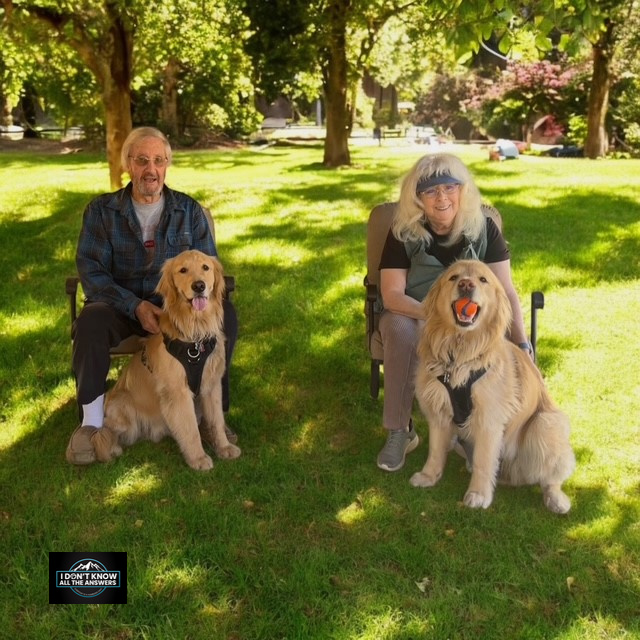If you’ve spent time with a furry friend beside you, you know the extraordinary bond between humans and dogs. This companionship has been evolving for thousands of years. Scientists believe we’re witnessing a new chapter in this story—the third wave of dog domestication. This wave focuses on our furry companions adapting to meet the demands of modern life, making them not just ideal but remarkably adaptable for bustling urban environments, a testament to their resilience and ability to thrive in changing conditions.
Dog Domestication
Our story begins between 14,000 and 40,000 years ago when wolves first approached human campsites. These wolves had a unique trait—a lower fear response to humans—that allowed them to thrive around us. Over time, they evolved into proto-dogs, developing traits like friendliness and reduced aggression. This was the first wave of domestication, laying the foundation for the loyal companions we cherish today.
The Atlantic: Dogs Are Entering a New Wave of Domestication
Fast forward to the Industrial Revolution, and we see the second wave of domestication. Breeding focused on appearance, creating over 200 recognized breeds. Dogs became status symbols, valued more for their looks than their working abilities. However, this shift often overlooked the psychological needs of pets, especially in confined, densely populated spaces.
A Member of the Family
In the past, dogs had specific roles, from guarding homes to herding livestock. But today, they are not just pets but beloved family members. With urbanization, many dogs no longer have vast spaces to roam or tasks to complete. Instead, they are expected to be calm, friendly, and adaptable to various settings, from parks to cafés.
Research by Brian Hare and Vanessa Woods at Duke University’s Canine Cognition Center highlights this shift. They study service dogs, representing the traits many pet owners desire—calmness, intelligence, and sociability. Service dogs, trained to assist their owners in high-stress environments, demonstrate that the future of dog domestication may prioritize personality over traditional skills.
The Atlantic: Dogs Are Entering a New Wave of Domestication
Model Companions
Service dogs provide a glimpse into this future. They are bred and trained for gentleness and adaptability, qualities that make them exemplary companions. Studies at Sweden’s Linköping University reveal that service dogs have higher levels of oxytocin, the hormone linked to social bonding, than non-service pets.
Linköping University: Dogs’ social skills linked to oxytocin sensitivity
Hare and Woods suggest that the demand for friendly, adaptable dogs could lead to similar selective breeding in household pets. Over time, dogs could become even more sociable, comfortable around humans, and flexible to changing environments, offering a hopeful future for dog domestication.
A fascinating comparison comes from Russian experiments with foxes in the 1950s. These studies, conducted by Dmitry Belyaev, showed that breeding for friendliness resulted in behavioral and physical changes in just a few generations. The foxes became more dog-like in their behavior and appearance, demonstrating the powerful effects of selective breeding on domestication.
Pet Owners Evolving into Pet Parents
However, this evolutionary trend comes with challenges. Dogs with solid guarding instincts or high energy levels may struggle in urban settings. Their natural behaviors, like barking or guarding territory, can create conflicts in city living, leading to anxiety and abandonment. It’s important to consider these challenges when choosing a dog, and to provide appropriate training and socialization to help them adapt to urban life.
Hare and Woods propose that adapting service-dog training techniques for pets could help. Techniques like early socialization and positive reinforcement cultivate calmness and responsiveness. Yet, these methods require dedication. Adopting an adult dog with a stable temperament might be a better option for those unprepared for rigorous training.
The Atlantic: Dogs Are Entering a New Wave of Domestication
The 21st-Century Dog
The role of dogs in our lives is shifting from mere companionship to a profound interspecies relationship. As the third wave of domestication unfolds, dogs will likely evolve into family-friendly, socially adaptable companions. These dogs will seamlessly fit into modern households and align with contemporary lifestyles.
This transformation presents opportunities and challenges. The pet market may reshape, prioritizing dogs that coexist peacefully with children, neighbors, and other pets. Selective breeding for friendliness and adaptability could become the norm, paving the way for a more harmonious coexistence between dogs and their urban surroundings.
For now, service dogs offer a preview of this future. They are not just man’s best friend but tailored for a new relationship that aligns with the 21st century’s pace and spaces.
In conclusion, the third wave of dog domestication represents an exciting chapter in our shared history. It reminds us that, while our lives change, the bond between humans and dogs remains constant—a testament to the enduring love and companionship that defines our relationship with these remarkable animals. Whether you’re a dog owner, animal enthusiast, or evolutionary biologist, this wave invites us all to reflect on the evolving nature of our connection with man’s best friend and the crucial role we play in their responsible ownership and evolution.
References:
The Atlantic: Dogs Are Entering a New Wave of Domestication
Linköping University: Dogs’ social skills linked to oxytocin sensitivity
How to Choose a Dog for Children – Animal Behavior College. https://www.animalbehaviorcollege.com/blog/pet-training/how-to-choose-a-dog-for-children/
Thank you for reading this blog post. If you have any questions or comments, please leave them in the Comments section below.
Copyright © 2019. I Don’t Know All The Answers, Nikki Mastro.
All of my photographs and documents are Copyrighted.
No part of this website, including text, photographs, and documents, may be reproduced, stored in a retrieval system, or transmitted in any form or by any means without written permission from the copyright holder. All unauthorized use is strictly prohibited. If you choose to copy or share any information from my site, you must provide a link to the source. I appreciate your cooperation.
For further information concerning “I Don’t Know All The Answers.”
– Website and Blog: https://www.idontknowalltheanswers.com
– Facebook: https://www.facebook.com/Nikki.L.Mastro/
– Instagram: https://www.instagram.com/i_dont_know_all_the_answers/
– Linkedin: https://www.linkedin.com/in/nikki-mastro-05455a3a/
– Youtube Channel: https://www.youtube.com/@idontknowalltheanswers1954

